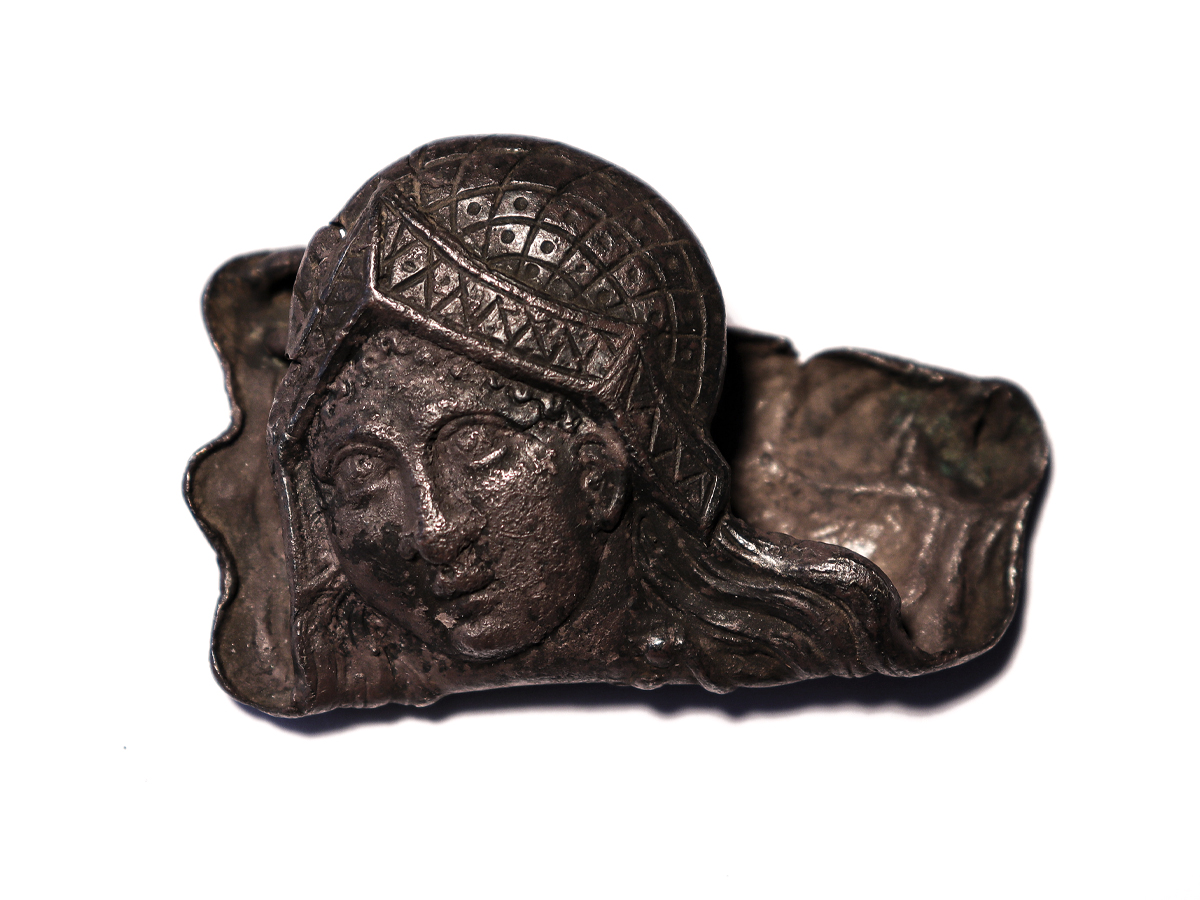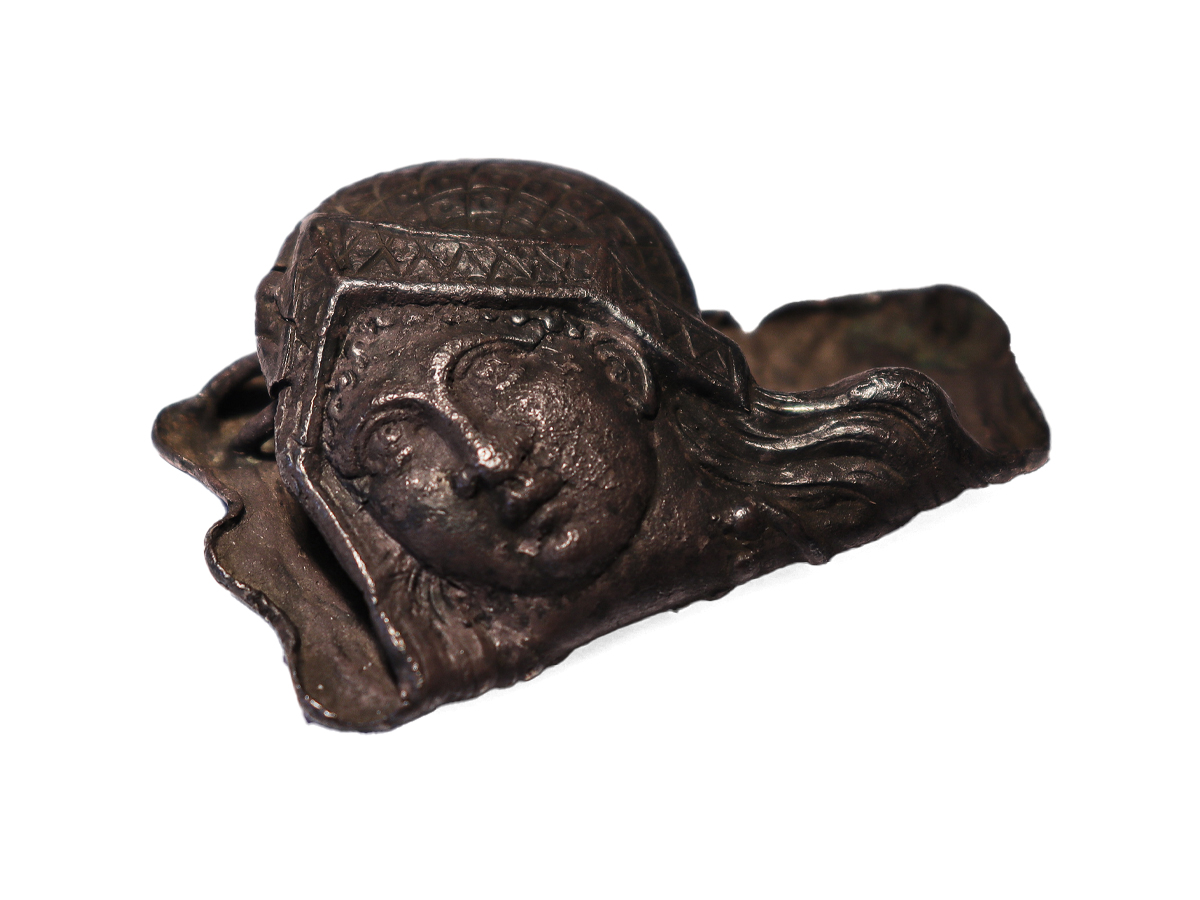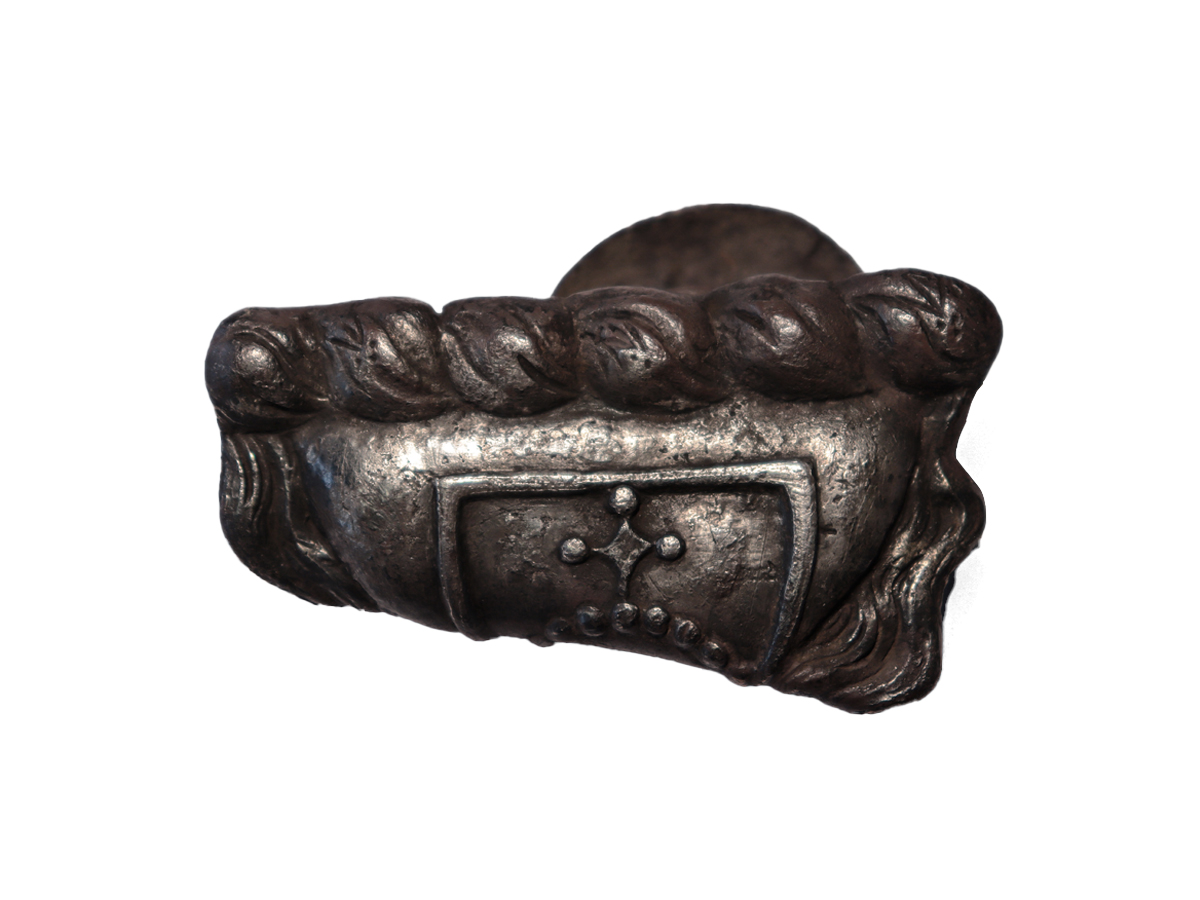Pilgrim Badge of St Ursula
Description
This pilgrim badge was found near Walton Hall, Walton-le-Dale, Preston. It is a rare and beautifully cast silver badge of Saint Ursula, who according to legend was killed in Germany in the 4th century AD. The mass production of pilgrim badges flourished in the 14th and 15th centuries, making them affordable to a wide range of people as souvenirs at Christian pilgrimage sites. This badge dating to the early 16th century may have been acquired at the shrine of St Ursula in Cologne, Germany. Most badges were made of copper-alloy rather than precious metals, so this silver badge was probably bought by a person of high status, possibly associated with Walton Hall.
The 16th century was a time of immense religious change known as the Reformation. In the 1530s King Henry VIII broke with the Catholic Church, appointing himself head of the Church of England. A turbulent period of religious reform followed which saw the dissolution of the monasteries, including Whalley and Sawley Abbeys in Lancashire. Pilgrimages were discouraged, as was the veneration of saints.
In 1536 a popular uprising known as 'the Pilgrimage of Grace' broke out in the north of England in opposition to the reforms. Thousands took part, including monks from Sawley Abbey where a local force of around 3000 men gathered. A song known as the 'Sawley Ballad' was used as a marching song by the rebels. It was the most serious uprising of the Tudor period.
Details
- Accession number
- LANMS.2012.28
- Category
- Archaeology
- Materials
- silver
On display
50 Objects Exhibition at Helmshore Mills Textile Museum 6 June - 31 October 2025. Search www.lancashire.gov.uk for Helmshore Mill opening times.


